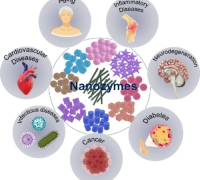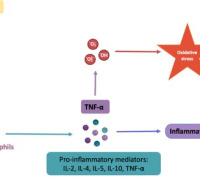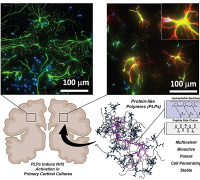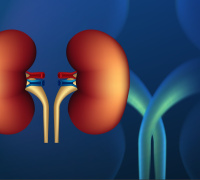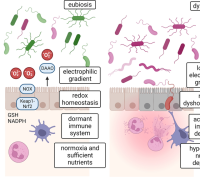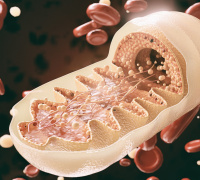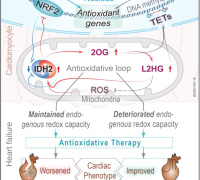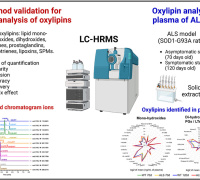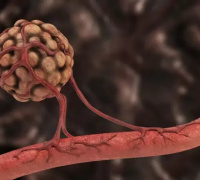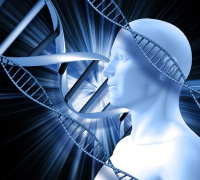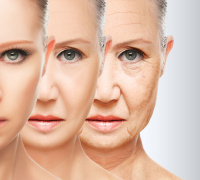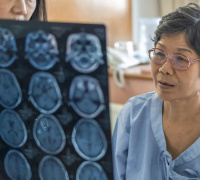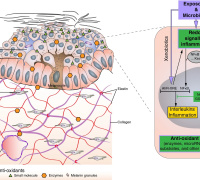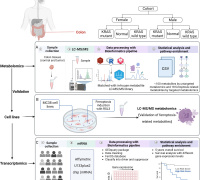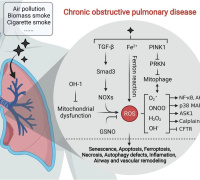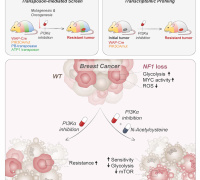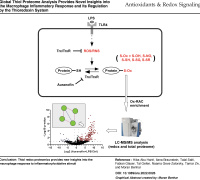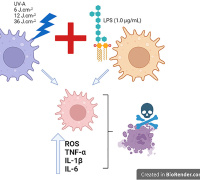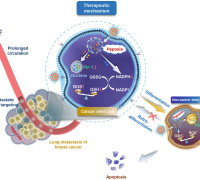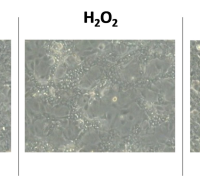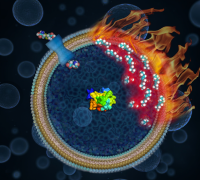News
Aging and Lifespan Extension: Insights into Fundamental Molecular Mechanisms

Even with all the research and advancements, strategic questions related to the aging process still persist. A new study by researchers from the University of Cologne, published in Nature, suggests breakthrough insights into these questions.
In their study, Debès et al. reported that ageing is associated with a decline in physiological homeostasis, which is partly due to impaired cellular processes such as transcription and RNA splicing.
They found that the speed of RNA polymerase II (Pol II), the enzyme responsible for transcribing DNA into RNA, increases with age in all five metazoan species studied (nematodes, fruit flys, mice, rats, and humans). This increase in Pol II elongation speed is associated with changes in splicing, including a reduction of unspliced transcripts and the formation of more circular RNAs.
Debès et al. showed that two lifespan-extending interventions, dietary restriction and lowered insulin–IGF signaling, both reversed most of these ageing-related changes in transcription and splicing.
Genetic variants in RNA polymerase II that reduced its speed in worms and flies also increased their lifespan. Similarly, reducing the speed of RNA polymerase II by overexpressing histone components, to counter age-associated changes in nucleosome positioning, also extended lifespan in flies and the division potential of human cells.
In conclusion, their findings uncovered fundamental molecular mechanisms underlying animal ageing and lifespan-extending interventions, and point to possible preventive measures.
In summary, they suggest that slowing down the speed of RNA polymerase II could be a promising strategy for extending lifespan. This is because a slower Pol II would have more time to proofread transcripts, resulting in fewer errors. Additionally, a slower Pol II would be less likely to disrupt chromatin structure, which is important for gene regulation.
Redox Medicine Society
Website | LinkedIn | Facebook
Redox Medicine, Mitochondria & Aging: The Underestimated Link
 Prof. Amalia M. Dolga, University of Groningen, The Netherlands, will join Redox Medicine 2023 this June to present all the advances concerning Redox Medicine, Mitochondria & Aging: The Underestimated Link.
Prof. Amalia M. Dolga, University of Groningen, The Netherlands, will join Redox Medicine 2023 this June to present all the advances concerning Redox Medicine, Mitochondria & Aging: The Underestimated Link.
Join Redox Medicine 2023 to learn more about Prof. Dolga's interesting talk. You can submit a related abstract here.
Redox Medicine 2023 Congress
June 21-23, 2023 - Paris, France
Website | LinkedIn | Facebook
The Skin Redoxome: Perspectives in Photodamage and Sun Care
 Dr. Mauricio S. Baptista, Universidade de São Paulo, Brazil will join Redox Medicine 2023 on June 21-23 to present a talk entitled "The Skin Redoxome: Perspectives in photodamage and Sun Care".
Dr. Mauricio S. Baptista, Universidade de São Paulo, Brazil will join Redox Medicine 2023 on June 21-23 to present a talk entitled "The Skin Redoxome: Perspectives in photodamage and Sun Care".
Redoxome is the network of redox reactions and redox active species that affect the homeostasis of cells and tissues. Due to the intense and constant interaction with external agents, the human skin evolved to host a robust redox signaling framework. The lack of redox regulation causes the accumulation of oxidation end-products being correlated with several skin disorders, including photoaging and skin cancer.
Protection of human skin against sun exposition is a complex issue that involves ambivalent aspects of the interaction of light with tissues. One misconception that has persisted in our society is that visible light is safe to the skin, even though recent data indicate that at least part of the visible spectrum decreases the epidermal barrier function, induces pigmentation in individuals with type IV and V skins and induces inflammatory response. Endogenous molecules absorb UV and visible light inducing several photosensitized oxidation reactions, which end-up deregulating the redox homeostasis and causing oxidative distress in skin cells and tissues, inducing the accumulation of glycation and lipid peroxidation end products, which are usually more effective photosensitizers than their respective their precursor molecules.
In this lecture, Dr. Baptista will analyze the main molecular networks of redox regulation present on the human skin, explain the mechanisms by which endogenous molecules (absorbing either UVA radiation or visible light) cause a dysregulation of the skin redoxome and analyze the consequences to skin cells, including chemical changes in nucleic acids, proteins and lipids, mutations and metabolic changes, aiming to propose more a comprehensive mechanisms of sun damage and skin care.
Join Redox Medicine 2023 to learn more about Dr. Baptista's interesting talk. You can submit a related abstract here.
Redox Medicine 2023 Congress
June 21-23, 2023 - Paris, France
Website | LinkedIn | Facebook
Redox Balance as a Biomarker: Towards Personalized Interventions for Health
 Dr. Dong-Yun Shi, Fudan University, China, will join Redox Medicine 2023 this June to present his recent research on "Redox Balance as a Biomarker: Towards Personalized Interventions for Health".
Dr. Dong-Yun Shi, Fudan University, China, will join Redox Medicine 2023 this June to present his recent research on "Redox Balance as a Biomarker: Towards Personalized Interventions for Health".
Join Redox Medicine 2023 to learn more about Dr. Shi's interesting talk.
All innovations regarding redox medicine will be covered during the meeting. You can submit a related abstract here.
Redox Medicine 2023 Congress
June 21-23, 2023 - Paris, France
Website | LinkedIn | Facebook
Antibacterial Strategies Based on Reactive Oxygen Species
 Prof. Wee Han Ang, National University of Singapore, will join Redox Medicine 2023 this June to present his recent research on the Antibacterial Strategies Based on Reactive Oxygen Species.
Prof. Wee Han Ang, National University of Singapore, will join Redox Medicine 2023 this June to present his recent research on the Antibacterial Strategies Based on Reactive Oxygen Species.
Join Redox Medicine 2023 to learn more about Prof. Ang's interesting talk. All innovations regarding redox medicine will be covered during the meeting. You can submit a related abstract here.
Redox Medicine 2023 Congress
June 21-23, 2023 - Paris, France
Website | LinkedIn | Facebook
More Articles...
- Antioxidant Capacity Biomarkers, A Path Forward To Develop ROS-Inducing Drugs For Cancer Therapy
- Arsenic-Copper: A Double-Edged Sword for a Unique Double Benefit against Immunological Disorders
- Redox Medicine 2023 Best Short Oral Presentation on Mitochondria-Related Oxidative Stress in Diverticular Disease
- Redox Medicine 2023 Best Poster Presentation Award































